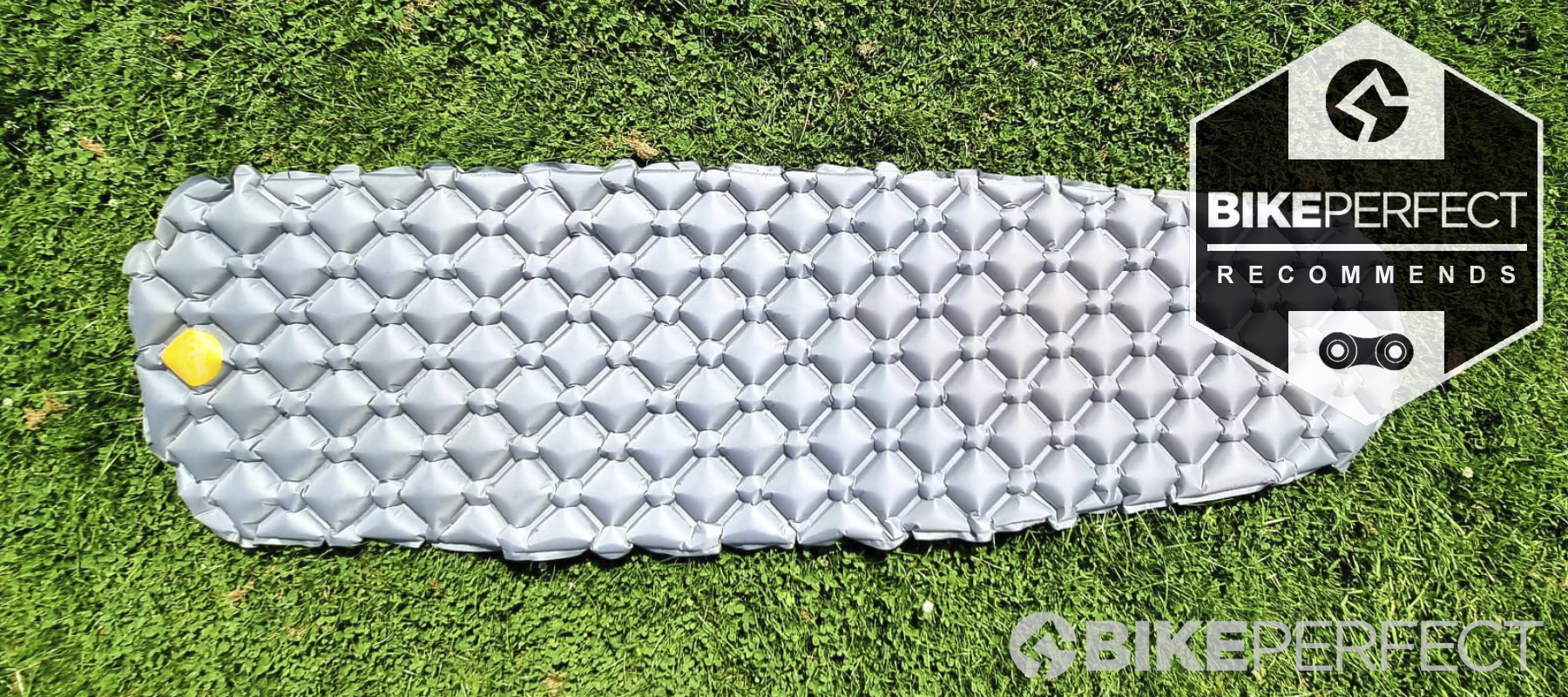Bike Perfect Verdict
An excellent value sleeping mat that delivers a really comfortable night's sleep, though its longevity is questionable
Pros
- +
Super comfortable for back and front sleeping
- +
Lightweight at 422g
- +
Packs down into its own stuff bag
- +
Easy to inflate and deflate
- +
Comes with a repair kit
Cons
- -
Oral inflation can lead to internal condensation and lasting damage
- -
The valve would be better placed at the top
- -
A little slippery
- -
Not ideal for side-sleepers
Why trust BikePerfect
Alpkit is a UK-based but internationally-selling outdoors brand specializing in everything from cycling, climbing and hiking equipment to camping essentials for all types of adventures, and offering its wares at incredibly affordable price points.
Among its many inflatable sleeping mat offerings, the Cloud Base is by far its most popular, based on its sales and overwhelmingly positive customer reviews.
An inflatable sleeping mat is — to this reviewer at least — one of the ultimate bikepacking essentials. Whether we’re camping in a tent or bivvying under the stars, it’s important to have some cushioning between your body and the ground to keep you comfortable and warm.
So what makes an inflatable sleeping mat good? Generally, we’d expect it to be easy to inflate and deflate, comfortable enough to have a good night’s sleep on, and robust enough to withstand rough usage. Adding bikepacking into the equation, it’s also vital that a good quality mat packs down small and weighs as little as possible.
- Bikepacking tips: Advice for first-time bikepackers
- Best bikepacking bikes: our pick of adventure-ready rides
According to Alpkit, the Cloud Base inflatable sleeping mat is designed for lightweight camping, which is why we chose it over its other offerings. Over the past few months we’ve subjected it to a multitude of uses in all weather conditions, with more wet nights than we’d care to remember. We’ve used it in conjunction with the Alpkit Aeronaut 1 tent, and while bivvying; on some occasions having the mat inside the bivvy bag, and others outside, but on top of a groundsheet. We’ve also used it in differing temperatures, from one particularly freezing spring night, to a recent heatwave overnighter that involved a lot of sweating. With all this use under our belts, here’s our verdict on whether it lives up to its reputation.
Design and aesthetics
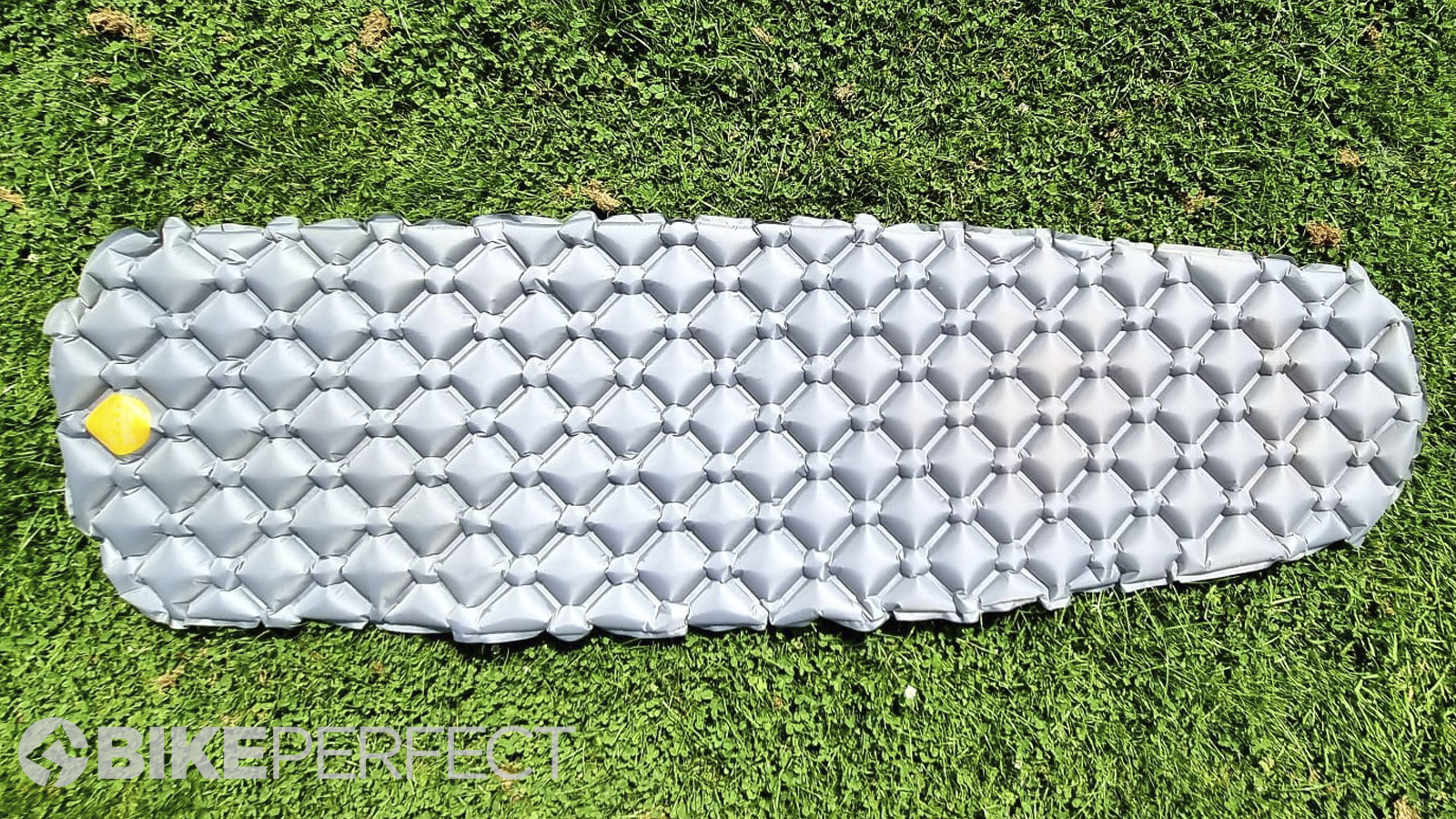
At 189cm, the Cloud Base is quite long but also reasonably narrow with a maximum width of 56cm. Fully inflated, it has a 5cm thickness, offering plenty of cushioning to shield you from the cold ground. When it’s packed away in its own bag, it’s roughly the size of a thermos flask, measuring 28cm in length and 8cm in diameter. However, due to the thin materials, if the space you have to play with doesn’t accommodate a relatively long, cylindrical package, it’s possible to actually fold it over again before stuffing into the bag, creating a thicker but shorter package that measures around 17 x 10cm.
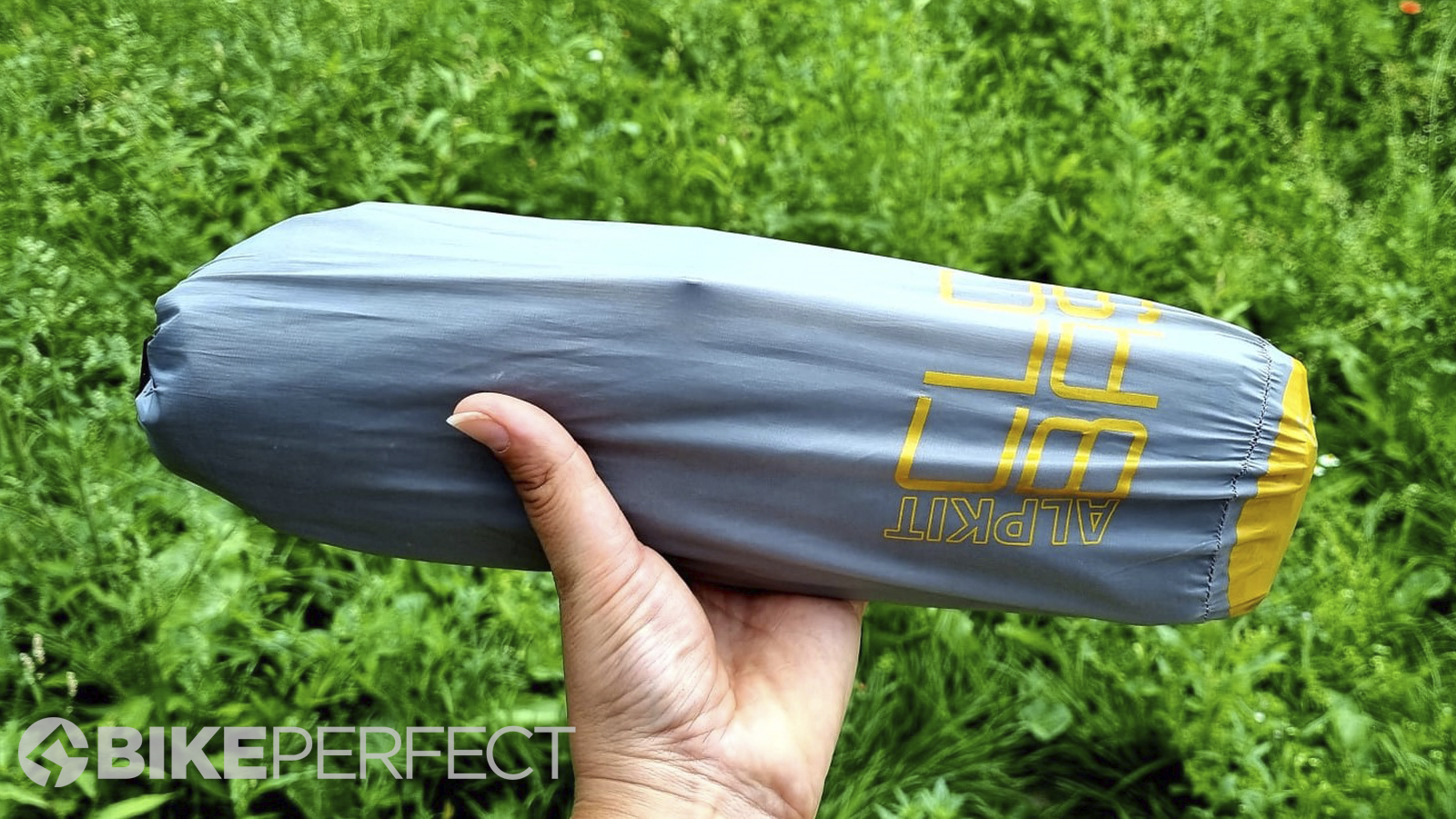
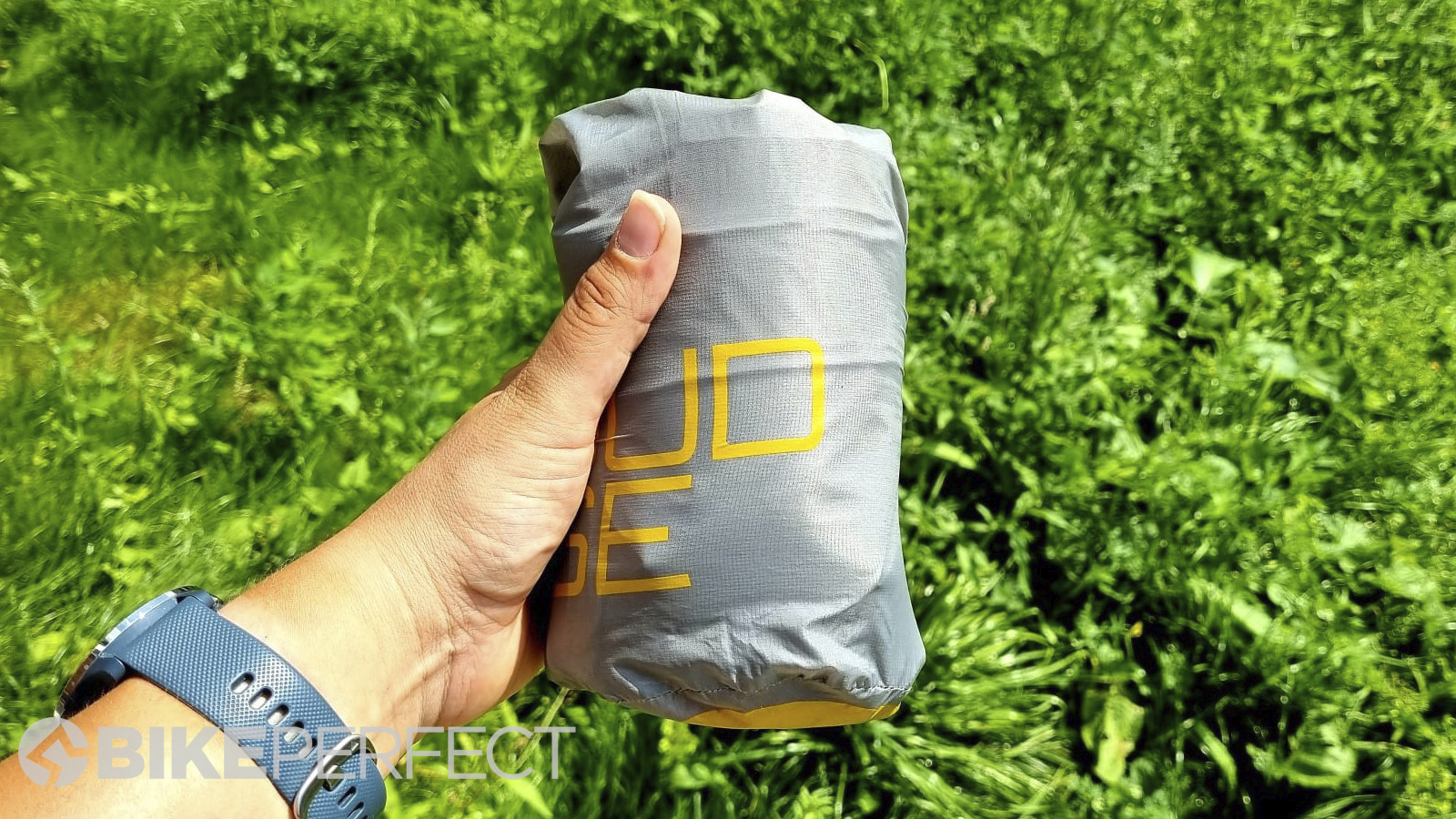
When deflated, the mat weighs 422g, which comes up only 20g heavier than the Sea to Summit UltraLight Mat that shares a similar construction but costs double the price. It comes with its own stuff bag as well as a repair kit, which is a thoughtful inclusion.
Its criss-cross air pocket design looks complex in construction but actually comprises two large panels of 20D polyester with diagonal sections glued together, creating channels that inflate to form diamond-shaped pillows of air.
In terms of shape, the upper end of the mat is rectangular with curved corners, and at around the halfway point it tapers inwards for a smaller foot-end, where the valve is located on the underside. This seems like an odd choice, as it makes adjustments to air pressure difficult overnight, especially when used inside a bivvy bag. Overnight deflation can happen as a result of changes in temperature, especially at altitude, so it would make more sense to have the valve located at the top where it’s more accessible.
For the valve, Alpkit has used a wide one-way valve with a flap that seals air between breaths, so you can take your time inflating it without wasting your efforts. It’s designed to be inflated by mouth and, for me, it took ten breaths to reach pique inflation.
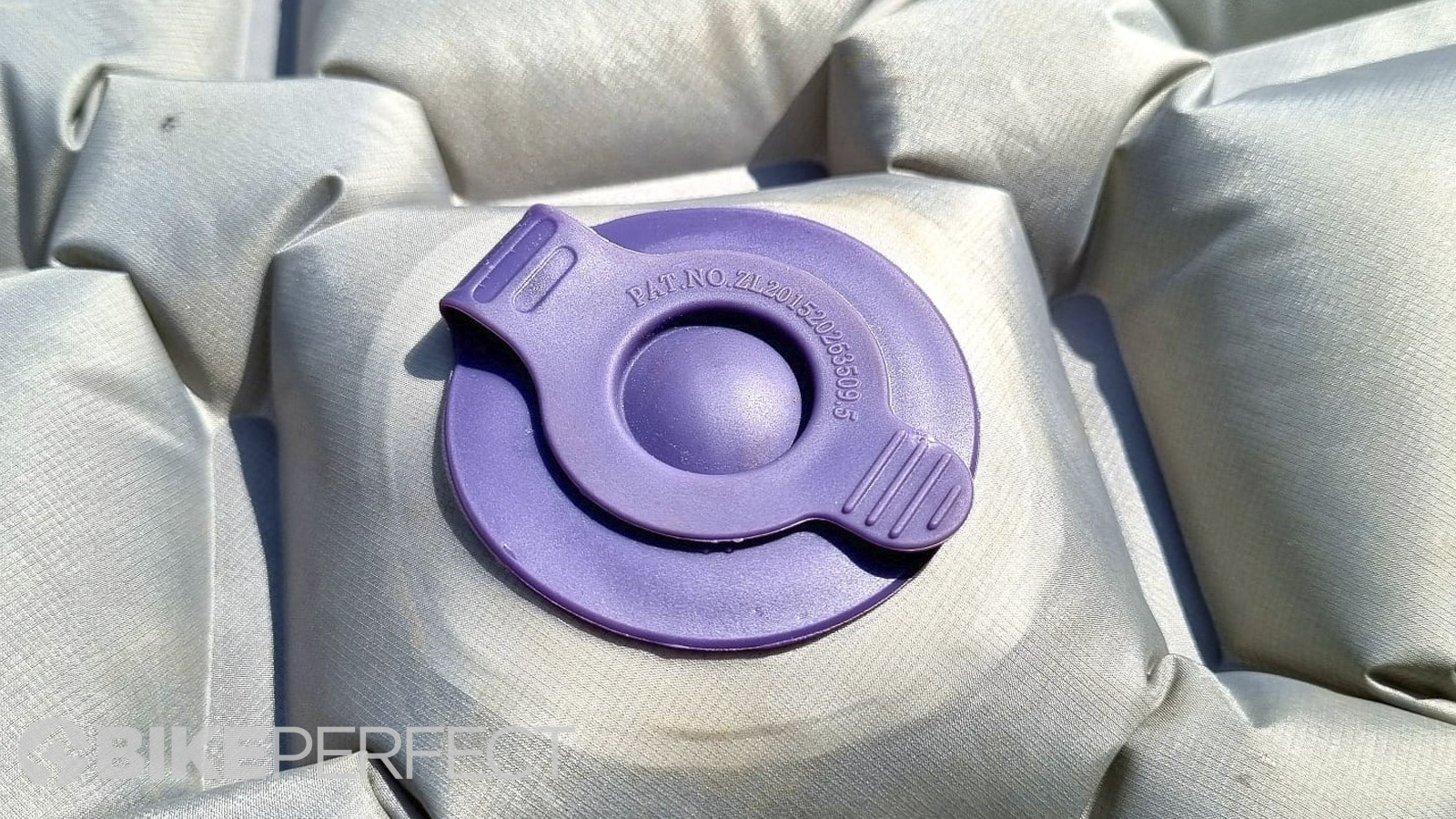
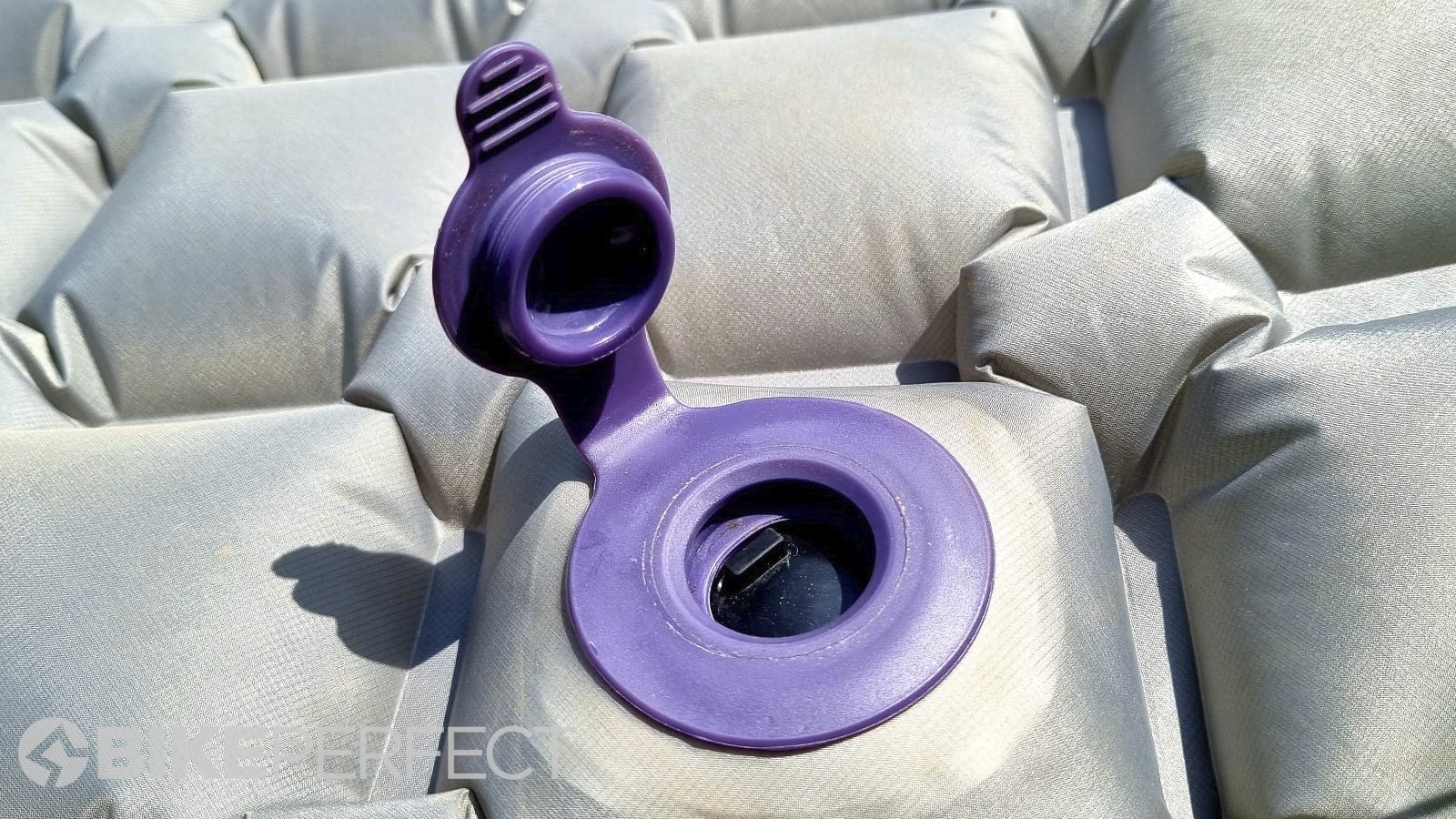
- Best bikepacking bags: carry your gear and supplies with ease
- Best bikepacking tires: tires to cover the miles on multi-day adventures
Performance
The Cloud Base is easy to use, and as mentioned above, the one-way valve makes light work of inflation. To deflate, it’s a simple act of pushing the flap inside the valve to let the air out. The mat is very light and packs down to a size that’s not exactly compact, but is certainly manageable for all but the absolute minimalist ultra-racer.
Once inflated, the Cloud Base is indeed very comfortable. The hexagonal air pocket design makes it easy to find comfort on uneven ground, and what’s more the small pillows do a great job of accommodating your weight as you shift around in the night.
Due to its 5cm thickness, which I’d personally place on the thinner end of the spectrum compared with other air mat offerings — e.g. the feathery 350g Thermarest NeoAir XLite has a 6.4cm thickness — I’d say it’s ideal for front and back sleepers. As a side and front sleeper, I’ve still had some of my most comfortable nights’ sleep on it, but when sleeping on your side you’re liable to wind up with numb limbs, as well as potentially feel the cold creeping up from the ground.
That’s the key compromise here with the Cloud Base. It’s designed to be lightweight and packable, so it doesn’t contain any kind of insulating foam layer. Without that insulation, if the ground is cold and your shoulder and hip are bearing downwards, you’re going to feel it. I’d personally steer side sleepers towards Alpkit’s Numo mat, which is thicker at 8cm.
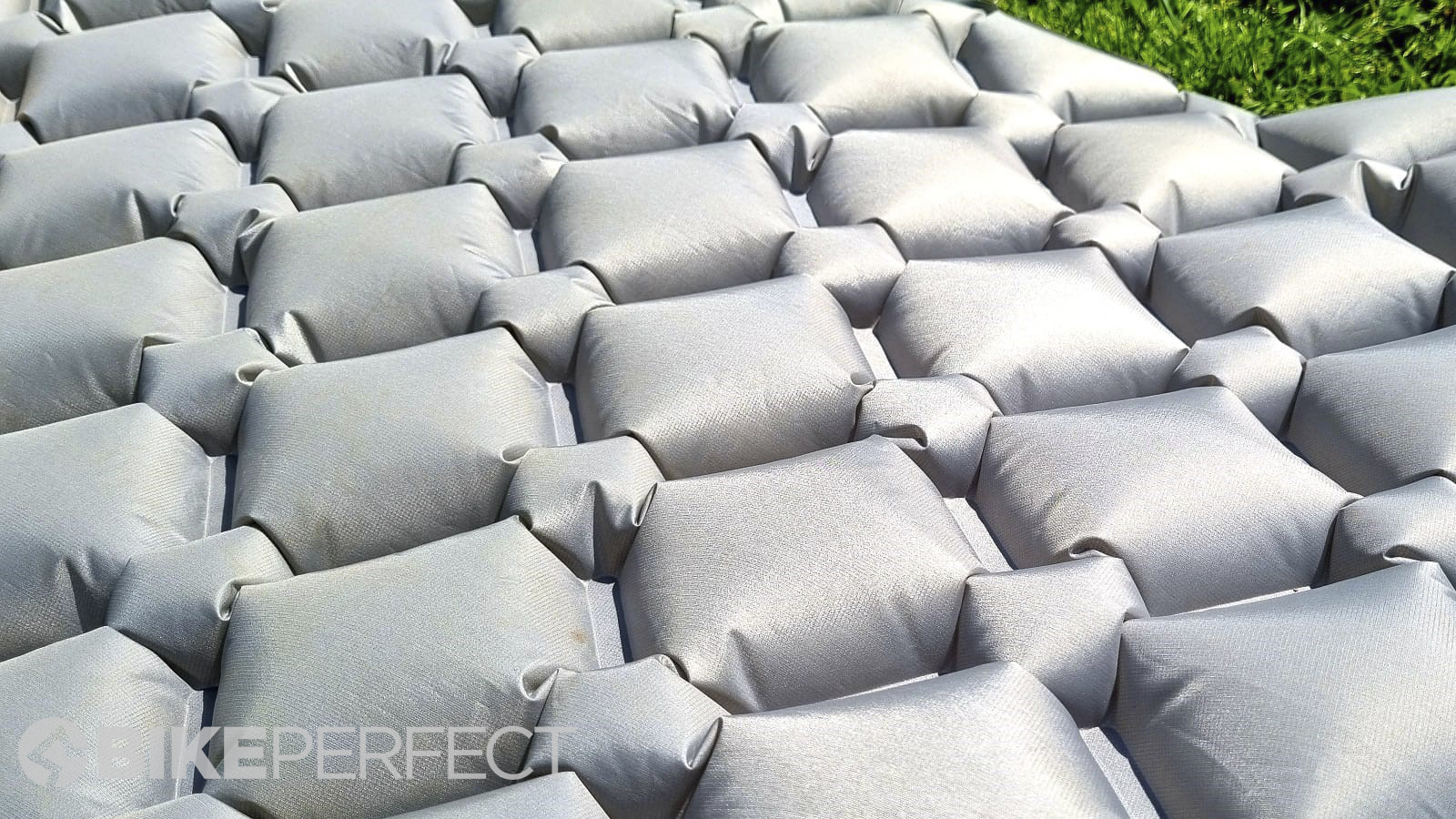
I’ve also found that due to its thin and rather slippery 20D polyester material, the Cloud Base has a bit of problem with sliding around throughout the night, especially when paired with a synthetic sleeping bag. I’m a bit of a fidget when I sleep outside, and have frequently found myself at an odd angle, with my legs overboard.
I have unfortunately experienced a puncture already with the Cloud Base, which was easy to find after submerging it in water. However it’s worth bearing in mind that it’s only ever been used inside a tent, tucked inside a bivvy, or out in the open but on top of a groundsheet. Considering competing mats are often made with 40D or 75D polyester, I’ve drawn the conclusion that this boils down to the thinness of the material.
Another reservation I have about its longevity is the fact that it relies on inflation from the mouth. As is the case with any orally inflated sleeping mat, there’s a risk of condensation building up inside over time which can not only deteriorate the material, but also provides the perfect habitat for mold. To ensure the Cloud Base — and all of its other mats, for that matter — lasts as long as possible, it would benefit from coming with an inflation bag.
- What is bikepacking? The ultimate guide
- Which bike is best for bikepacking?
Verdict
It’s undeniable that at this price point, the Cloud Base offers extraordinary value for money. It’s a lightweight and packable sleeping mat that’s easy to use and provides a really comfortable night’s sleep on uneven surfaces.
In line with Alpkit’s commitment to sustainability, I love that the Cloud Base comes with its own repair kit. Of course, punctures are more likely with a thin 20D polyester fabric but that’s the price you pay for having a piece of equipment that’s both lightweight and packable enough to take on bikepacking trips, as well as incredibly affordable.
As I said before, the oral inflation comes with a risk of moisture accumulation inside that may negatively impact the mat’s lifespan, so while overall the Cloud Base is an excellent sleeping mat that offers great value, it may well come with a limited use-range.
Tech Specs: Alpkit Cloud Base inflatable sleeping mat
- Price: $54.99 / £44.99 / AU$86
- Weight: 422g
- Materials: 20D nylon with TPU laminate, C6 DWR
- Dimensions: 189 x 56 x 5cm, ⌀ 8 x 28cm (packed)

Mildred previously worked as a review writer for Bike Perfect. She enjoys everything from road cycling to mountain biking, but is a utilitarian cyclist at heart. Determined to do everything on two wheels, she's even moved house by bike, and can regularly be found pedaling around Bristol and its surrounding areas. She’s spent over four years volunteering as a mechanic and workshop coordinator at the Bristol Bike Project, and now sits on its board of directors. Her expertise comes from previously working in a bike shop and learning the ins and outs of the industry, and she's previously written for a variety of cycling publications, including Bikeradar, Cycling Plus, Singletrack, Red Bull, Cycling UK and Total Women's Cycling. At home on slicks and knobblies alike, her ideal ride covers long distances through remote countryside, on mixed terrain that offers a bit of crunch, followed by a gourmet campfire meal and an overnight bivvy beneath the stars.
Rides: Stayer Groadinger UG, Triban RC520 Women's Disc, Genesis Flyer, Marin Larkspur, Cotic BFe 26, Clandestine custom bike
Height: 156cm (5'2")
Weight: 75kg
